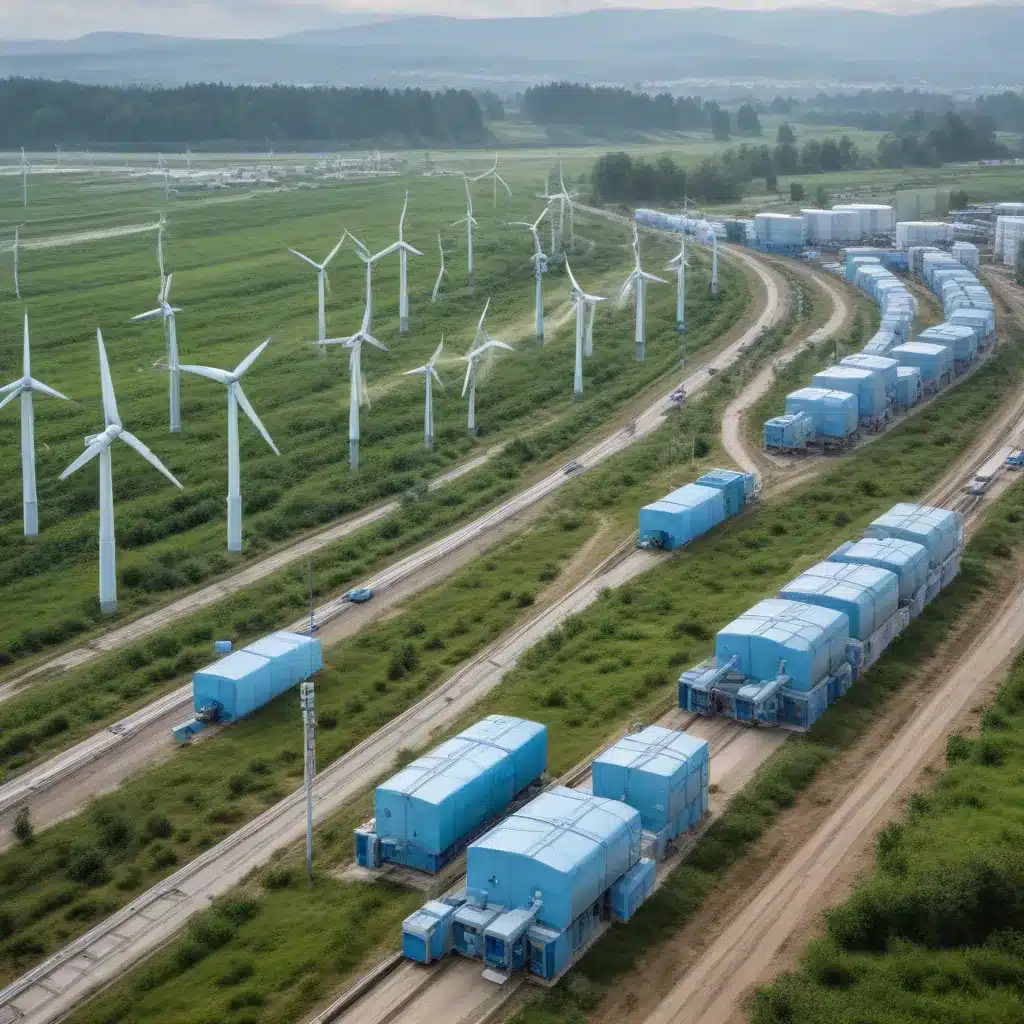
The world is on the cusp of a transformational shift towards a decarbonized future, and hydrogen is emerging as a critical pillar of this transition. As Europe races to meet its ambitious net-zero emissions goals, the continent is spearheading a surge in renewable energy deployment and pioneering innovative hydrogen pilot projects. However, realizing this vision requires unlocking substantial financial resources to drive the commercialization and scaling of hydrogen technologies.
The Hydrogen Economy
Hydrogen has the potential to revolutionize hard-to-abate sectors, such as heavy industry and long-haul transportation, where electrification poses significant challenges. By harnessing renewable energy sources to produce green hydrogen, Europe can decarbonize these emissions-intensive activities and support its transition to a sustainable energy system.
Hydrogen Production Technologies
The production of green hydrogen, generated through the electrolysis of water powered by renewable electricity, is a cornerstone of this transition. Advances in electrolyzer technology and the availability of abundant renewable energy resources, particularly wind and solar, have made green hydrogen an increasingly viable option. However, the capital-intensive nature of these projects and the relatively high costs compared to traditional fossil fuel-based hydrogen production continue to pose barriers to widespread adoption.
Renewable Energy Integration
The integration of renewable energy sources, such as wind turbines and solar photovoltaic panels, is crucial for scaling up green hydrogen production. By leveraging these clean energy technologies, Europe can ensure a reliable and sustainable supply of the hydrogen feedstock, further reinforcing the environmental benefits of the hydrogen economy.
Hydrogen Storage and Distribution
Addressing the challenges of hydrogen storage and distribution is also essential for the successful deployment of hydrogen infrastructure. Innovative solutions, including hydrogen pipelines, storage facilities, and refueling stations, are being developed to overcome these logistical hurdles and enable the seamless integration of hydrogen into the energy system.
Financing Mechanisms
Unlocking the necessary capital to finance these hydrogen-related projects is a crucial step in realizing the full potential of the hydrogen economy. A diverse range of financing mechanisms, both public and private, are being explored to drive investment and support the transition.
Green Bonds and Sustainability-Linked Loans
The global green bonds market, which has experienced exponential growth in recent years, presents a significant opportunity for financing hydrogen projects. These bonds, specifically designed for environmentally sustainable initiatives, provide a reliable source of capital for green hydrogen production and supporting infrastructure. Additionally, sustainability-linked loans, where the interest rate is tied to the achievement of sustainability-related targets, can further incentivize hydrogen-related investments.
Public-Private Partnerships
Collaboration between the public and private sectors is essential to bridge the funding gap and de-risk hydrogen projects. Public-private partnerships (PPPs) can leverage government support, such as subsidies, tax incentives, and loan guarantees, to attract private investment and catalyze the development of the hydrogen economy. These partnerships can also facilitate the sharing of risks and rewards, making hydrogen projects more attractive to private investors.
Venture Capital and Private Equity
The hydrogen sector’s growth has also caught the attention of venture capital (VC) and private equity (PE) firms. These investors, drawn to the potential of emerging hydrogen technologies and the long-term growth prospects of the industry, can provide critical early-stage funding and strategic guidance to support the commercialization and scaling of innovative hydrogen solutions.
Policy and Regulatory Frameworks
Robust policy and regulatory frameworks are essential to create a conducive environment for hydrogen investment and development. Governments across Europe are implementing a range of measures to support the hydrogen transition.
Emission Reduction Targets
The European Union’s ambitious climate targets, including the goal of achieving net-zero emissions by 2050, have provided a clear policy signal for the hydrogen economy. These targets, coupled with supportive regulations, are driving investment and innovation in hydrogen technologies.
Incentives and Subsidies
Governments are deploying a variety of incentives and subsidies to stimulate the hydrogen market. For example, the Inflation Reduction Act in the United States offers a production tax credit of up to $3 per kilogram of green hydrogen, providing a strong financial incentive for investment in this sector.
Infrastructure Development
The development of dedicated hydrogen infrastructure, such as storage facilities, distribution networks, and refueling stations, is crucial for the widespread adoption of hydrogen. Governments are partnering with the private sector to invest in these critical enablers, ensuring a robust and accessible hydrogen ecosystem.
Societal and Environmental Impacts
The transition to a hydrogen-powered economy holds immense promise not only for environmental sustainability but also for societal well-being and economic development.
Decarbonization of Hard-to-Abate Sectors
By enabling the decarbonization of industries like steel, cement, and aviation, the hydrogen economy can make significant strides in reducing greenhouse gas emissions and mitigating the impacts of climate change. This shift towards a greener future has far-reaching implications for the well-being of communities and the planet.
Sustainable Job Creation
The growth of the hydrogen sector is expected to drive the creation of new, sustainable jobs across various industries, from manufacturing and engineering to infrastructure development and maintenance. This economic opportunity can contribute to the development of local communities and support the transition to a more inclusive green economy.
Community Engagement
Proactive engagement with local communities is essential to ensure the equitable and responsible deployment of hydrogen projects. By addressing concerns, fostering dialogue, and involving stakeholders in the decision-making process, the hydrogen industry can build trust and create shared value for all.
As Europe continues to lead the global charge towards a decarbonized future, the hydrogen economy emerges as a pivotal component of this transformative shift. By unlocking the necessary financial resources through innovative financing mechanisms, supportive policy frameworks, and collaborative partnerships, the continent can harness the power of hydrogen to propel its sustainable energy transition and pave the way for a greener, more prosperous tomorrow. Visit the European Future Energy Forum to learn more about the latest developments and opportunities in the hydrogen economy.







